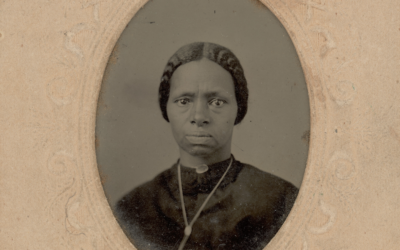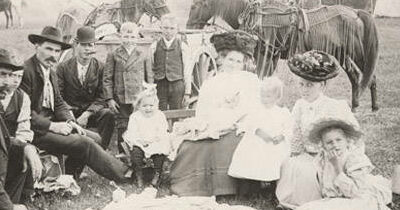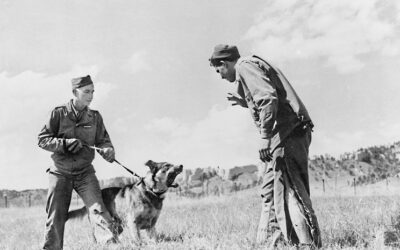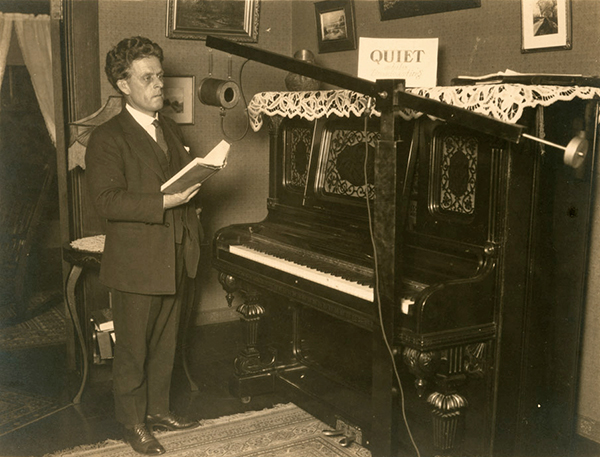
Neihardt doing a radio broadcast in the 1920s. History Nebraska RG1042-1-4
By David L. Bristow, Editor
On April 18, 1921, the Nebraska state legislature became the first* to name a state poet laureate, honoring forty-year-old John G. Neihardt of Bancroft.
What prompted the legislature to bestow this unprecedented honor?
The answer has to do with the veneration of classical Greek and Roman literature plus Nebraska’s recent frontier status. The event also demonstrates how our interpretation of American history has changed since then, and how Neihardt played a role in that.
The legislature’s resolution cited Neihardt’s American epic poem-in-progress, a five-part work eventually titled A Cycle of the West. The poet had completed the first two books by 1921. Both celebrated the “mountain men” of the Missouri River fur trade era. The legislature recognized Neihardt’s
“national epic wherein he has developed the mood of courage with which our pioneers explored and subdued our plains, and thus has inspired in Americans that love of the land and its heroes whereby great national traditions are built and perpetuated.”
Two phrases are important here: “national epic” and “subdued our plains.”
Did you read The Odyssey in high school? Students still read some of the Greek and Roman classics, but those works have lost their central place in our idea of what it means to be educated. When Neihardt was young, a traditional college education involved the study of Greek and Latin so that one could read the classics in the original languages. Most people never went to college, and fewer still mastered the ancient languages, but the idea remained that epic poetry in the style of Homer and Virgil was a supreme expression of a nation’s cultural legacy.
Meanwhile, Nebraska in 1921 was a pretty rough and unromantic place—dirt roads, small farms, and plenty of work that was still horse-powered. Then as now, most Nebraskans thought of themselves as practical-minded people. A common opinion in Bancroft was that Neihardt was the sort of dreamy oddball who never gets ahead in the world.
But to people who read his work in the light of the adventures of Achilles and Odysseus, it was a big deal that a fellow Nebraskan was doing for Western American history what the ancient bards had done for Greece and Rome. These people felt that Neihardt was validating their national story, placing Americans in general and Westerners in particular within a grand and noble tradition.
Today we hear the arrogance in the phrase “subdued our plains,” with its preemptive claim of ownership and its erasure of the Native people who were subdued. But this is where the legislature’s statement proved ironic. Neihardt made Native peoples the protagonists in two of the Cycle’s later books: The Song of the Indian Wars (1925) and The Song of the Messiah (1935). To an unusual degree for a White man of his generation, he attempted to give Native peoples equal status in his portrayal of Western history.
To further the irony, today Neihardt is best remembered for a side project that came from his research for the Cycle. He based his 1932 book Black Elk Speaks on interviews with Lakota spiritual leader Nicholas Black Elk. Neihardt’s interpretation of Lakota culture continues to receive both praise and criticism, but he was striving toward a more inclusive vision of America than people anticipated in 1921.
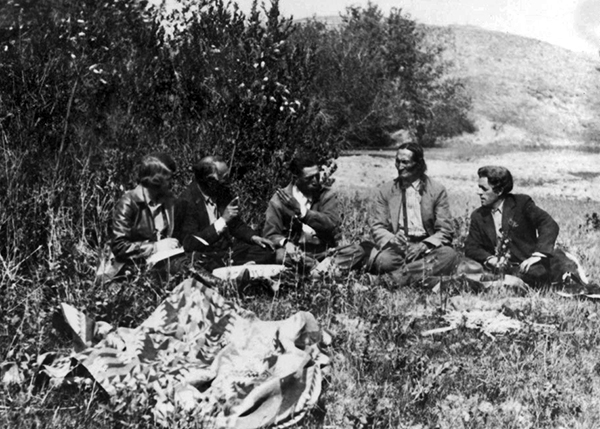
Neihardt (right) communicated with Black Elk (second from left) through an interpreter. HIstory Nebraska RG1042-ai-55
In 1976 the State dedicated the John G. Neihardt State Historic Site in Bancroft. Today the site is an affiliate of History Nebraska and is managed by the John G. Neihardt Foundation, which is planning events to commemorate the centennial of Neihardt’s selection as poet laureate. Read more in the Lincoln Journal Star.
(Posted 4/2/2021)
* California was first state to name a state poet laureate, but did so by a governor’s proclamation. Nebraska was the first to do so by a formal act of the legislature. At the time Nebraska made a big deal of that distinction, saying it was more official and democratic. Take that, California!

